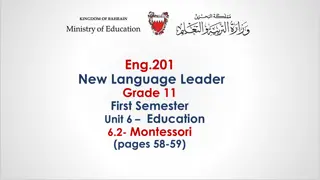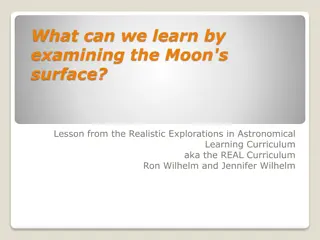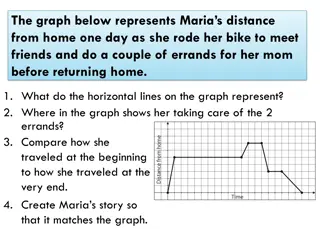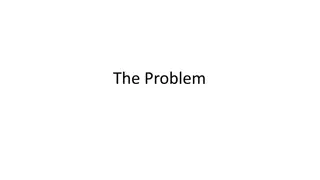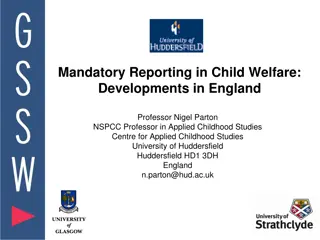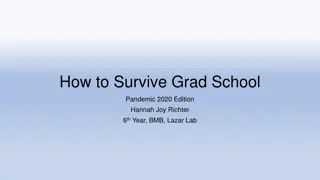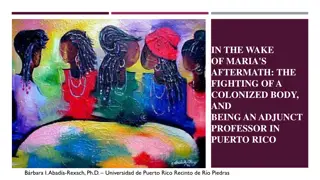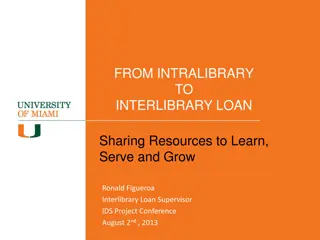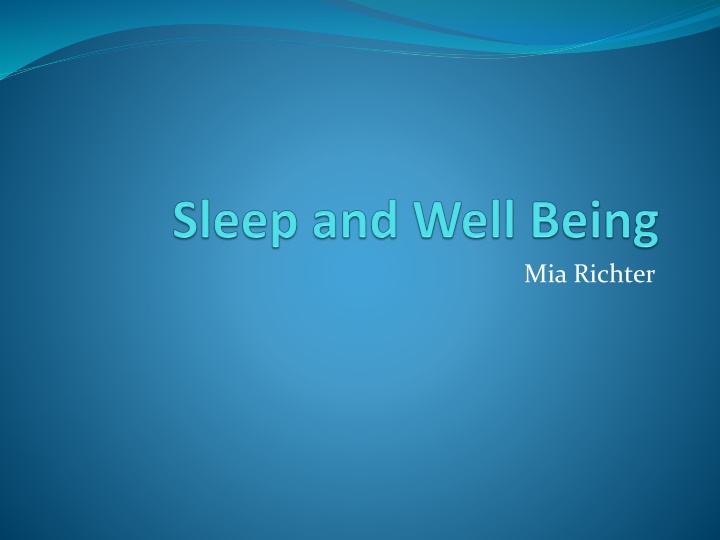
Exploring the Relationship Between Sleep and Well-being in Education Studies
"Mia Richter, a PhD student in Education Leadership and Policy Studies, aims to investigate the impact of sleep deprivation on student well-being. Her research involves the Wabash National Study of Liberal Arts Education, examining experiences influencing growth in higher education. The study includes data collection from first-year undergraduates at various institutions over multiple years. Follow Mia on her journey to uncover critical insights into student well-being and academic development."
Download Presentation

Please find below an Image/Link to download the presentation.
The content on the website is provided AS IS for your information and personal use only. It may not be sold, licensed, or shared on other websites without obtaining consent from the author. If you encounter any issues during the download, it is possible that the publisher has removed the file from their server.
You are allowed to download the files provided on this website for personal or commercial use, subject to the condition that they are used lawfully. All files are the property of their respective owners.
The content on the website is provided AS IS for your information and personal use only. It may not be sold, licensed, or shared on other websites without obtaining consent from the author.
E N D
Presentation Transcript
About Me Mia Richter PhD Student in the Education Leadership and Policy Studies (EPLS) in the Higher Education and Student Affairs (HESA) program Comprehensive Exam Masters in Public Health Personal love for health and well-being
My Goal Investigate the relationship between sleep and well- being Hunch: Students whom report sleep deprivation will also report lower levels of well-being
Data Wabash National Study of Liberal Arts Education (WNSLAE) Supported by grant from Center of Inquiry in the Liberal Arts at Wabash College to Center for Research on Undergraduate Education at the University of Iowa Concerned with understanding the conditions and experiences that constitute an influential liberal arts education Estimate extent specific academic and nonacademic experiences during postsecondary education contributed to change or growth
Institutional Sample Incoming first-year students at 19 four and two year institutions Eleven states 4 general regions of United States Institutions selected from over 60 institutions whom responded to national invitation to participate in WNSLAE Three research universities Three regional universities Two, two-year community colleges Eleven liberal arts colleges
Student Sample First year, full-time undergraduates Sample selected randomly for larger institutions Sample was entire incoming first-year class for all liberal arts colleges Informed of monetary stipend Assured confidence
Data Collection Initial collection: early Fall 2006 (Freshman year) 4,501 students from 19 institutions 90-100 minutes $50 stipend Questions on demographics, familiy background, high school experiences, politial orientation, educational degree plans, intellectual and personal development Follow up data collection: Spring 2007 (Freshman year) Two hours $50 stipend Posttest Follow up data collection: Spring 2010 (Senior year) Two hours $50 stipend
Methodological Strength Longitudinal Design Allows for wide range of statistical controls Student background/precollege traits Overhead projector
Goal of WABASH Concerned with understanding the conditions and experiences that constitute an influential liberal arts education Outcome Measures Seven Dimensions: Well-being Effective reasoning and problem solving Inclination to inquire life-long learning Intercultural effective3ness Leadership Moral character Integration of leaning
Well-Being Ryff Scales of Psychological Well-Being (SPWB) SPWB 54 item Theoretically-grounded instrument Measures six dimesions of well-being Self-Acceptance Personal Growth Purpose in Life Positive Relations with Others Environmental Mastery Autonomy
Additional measure of physical well-being Frequency of Sleep depreivation Single item How often students felt sleep deprived Five responses Ranging from Almost always to Never
My Goal Investigate the relationship between sleep and well- being Hunch: Students whom report sleep deprivation will also report lower levels of well-being
Thank you! Questions?


